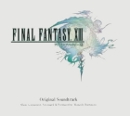
|
|
ActRaiser :: Review by Jon Turner
 |
Album Title: | ActRaiser |
| Record Label: | Alfa | |
| Catalog No.: | ALCA-105 | |
| Release Date: | January 25, 1991 | |
| Purchase: | Buy at eBay |
Overview
Today, it is common for most game soundtracks to have orchestral pieces. While fans argue that the introduction of CD-based consoles were undoubtedly responsible for this trend, in actuality, there were cartridge-based games that tickled the ears of many. One such game was ActRaiser, an early title for the Super Nintendo system developed by Quintet and published by Enix. This unusual game, which combines side-scrolling action-based stages with role-playing Sim City style interludes (where the player commands the recently freed villagers to reconstruct their towns), was also notable for its music score, as contributed by Yuzo Koshiro.
Body
Upon listening to this music, one would has the impression that it sounds and feels very symphonic. The compositions themselves sparkle with classical "leitmotifs" very much in the style of Bach, Beethoven, Mozart, Bruckner, or Mahler, but it's the "orchestra" that drives them which really makes this score tick. Squeezing out the limits of the much-heralded Super Nintendo sound chip, Koshiro aptly manages to create a rich, vibrant synthesis that very closely resembles, but never quite sounds identical to, an actual orchestra. For a system that relies on cartridges for its games, this was a very impressive achievement indeed.
There is really no way to describe the score for ActRaiser as anything but an instant masterpiece. The first track that opens the score, a rousing, heroic march introduced by the rich tones of the brass section, immediately displays both its epic nature and a challenge to the argument that game music could never sound this amazing. This is followed by "Sky Palace," a slow, melancholy hymn reminiscent of Bach's "Tocatta and Fugue in D Minor," as delivered on a moderately heavy-sounding pipe organ.
When the action stages kick into gear, so too does the score, as Koshiro meshes the classical tones with an interesting and not too jarring techno-tempo, as evidenced in "Filmoa." This track mixes another Bach-style composition with an impressive percussion beat. Hearing this track, one would assume that Bach's Brandenburg concertos have gone disco! While the remaining tracks don't exactly match up to this kind of amazing mixture, they fall nowhere short of excellence. "Blood Pool ~ Casandora" and "All Over the World" sizzle with energy and power, while "Aitos ~ Temple" begins ominously before progressing into an understated but intense tempo. Quieter breaks include the minimalistic-sounding "Pyramid ~ Marana" and the warm, yet romantic sounding "North Wall". This latter track reminded me a lot of Holst's "Venus" movement from his Planets score.
The boss battle themes, which include "The Beast Appears", "Powerful Enemy", and "Satan" are all some of the most furious, fast-paced and pounding action-cues ever committed to a videogame and literally shake the speakers with gusto. Of the eighteen tracks on the album, three of them are classified as fanfares, although one of them "Silence," does emerge as a distinctively notable, albeit brief, standout.
For the simulation stages, Koshiro tones down the intensity and brings up the subtleness and warmth. "Birth of the People" is a Mozart-like concerto carried by the pizzicato plucks of the "strings" and the mellow, almost heavenly tones of the woodwinds. "Offering" is a beautiful, heartfelt hymn that displays Koshiro at his finest and the Super Nintendo sound chip at its most pleasing. The penultimate track, "Peaceful World" depicts a triumphant yet restrained epilogue that conveys newfound harmony and a definitive finality.
The score's final track begins sounding something along the lines of the "20th Century Fox" fanfare before settling into a victorious march. Midway through, a brief reprise of "North Wall" can be heard just prior to a grand finale that culminates with four very satisfying notes.
It's a pity that ActRaiser's score quickly fell out of availability shortly after being released on an 18-track CD provided by Yuzo's then parent record company, Alfa Records. Clocking in at 41:38 minutes, the tracks loop two to three times and are amplified by a rich, studio-like reverb added primarily to give the tunes a more "concert" like feel. Considering that much of ActRaiser's score screams "classical," this is a nice bonus. Recently, perhaps due to the game being rereleased on the Wii Virtual Console, the score has been made available again on CD on a three-disc compilation from Five Records Yuzo Koshiro Best Collection Vol. 1. While this album is laudable for bringing back a masterpiece of a score and for including a track inadvertently omitted on the original release ("Level Up," a brief harp glissendo fanfare), the sound mix omits the concert-like feel, resulting for a flat experience. Whether this compromise is worth picking up a more commercially available release just mainly for one four second track is totally up to the purchaser.
Summary
Album situation aside, there is no denying that ActRaiser is an amazing early staple of game music at its finest. Future game scores would become more elaborate, complex, and experimental, but while there are indeed fine video game soundtracks available today, it's remarkable at how well ActRaiser holds up. As an early creation from Yuzo Koshiro, its amazing, but as a cartridge-based score it is phenomenal. Finicky listeners may gripe at how dated the synthesis sounds at points, but on the whole this remains a soundtrack of musical excellence, exuding a sense of classical-style and epic-ness seldom matched. Very highly recommended.

